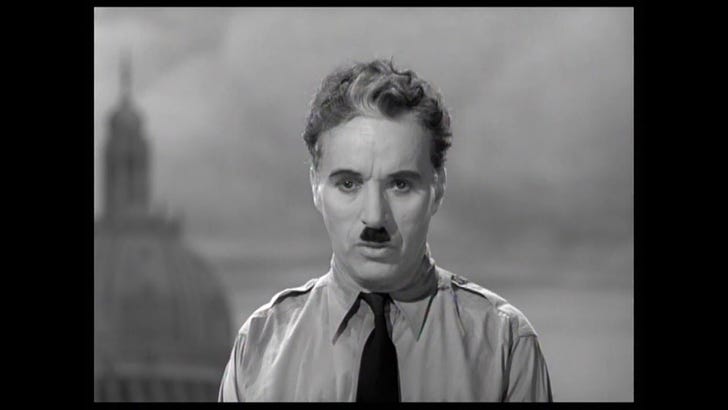In his most famous film, “The Great Dictator,” Charlie Chaplin masterfully portrays two distinctly contrasting characters. One is the vulnerable and persecuted Jewish barber, a symbol of innocence and victimhood, while the other embodies the epitome of vanity and malevolence as a routhless dictator. In a brilliant move, Chaplin orchestrates the former character to impersonate the latter, thereby ingeniously blurring the lines that traditionally separate the oppressed from their oppressors. This narrative choice does not merely serve as a plot device but elevates the film to a meditation on the fragility and malleability of identity under the pressures of sociopolitical forces.
The Great Dictator transcends its immediate political satire to become a reflective mirror on the potential for transformation inherent in each individual, posing an enduring question: What are the inner workings and external pressures that can morph us into the very embodiment of what we most vehemently oppose?
This question has been haunting me every day for the past few months.



